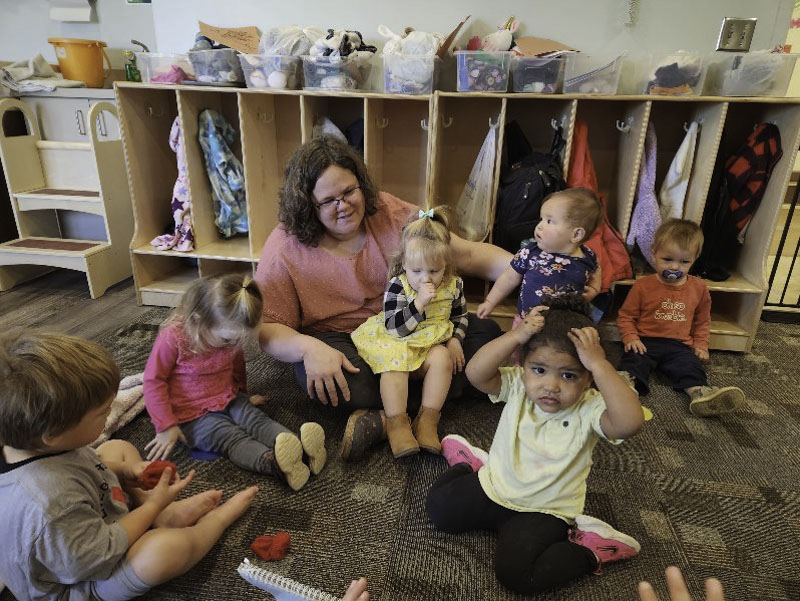Classrooms
God’s Treasures Childcare Learning Center operates Monday through Friday from 7:00am – 5:00pm and is licensed to serve up to 82 children:
- 16 Infants
- 28 Toddlers
- 20 Preschool students
- 18 School-aged students
We offer full-time and part-time care. During our hours of operation children are supervised at all times.
Infant Classroom – Teacher Jessica Schmidt
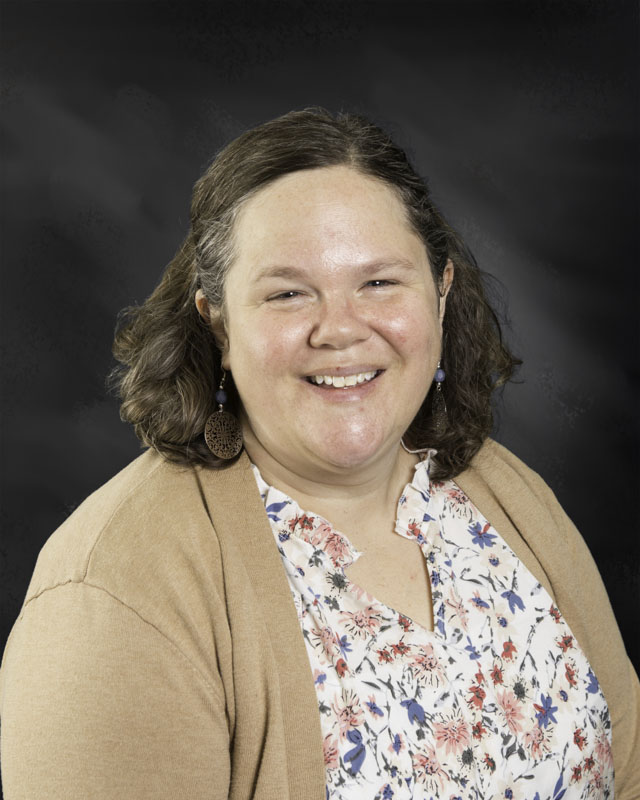
Infants are generally 6 weeks to 16 months of age. Each infant will have their own individual feeding and sleeping schedule. As infants grow older, they will sleep less, and will be laid down for morning and afternoon naps on their own individual schedule while still being allowed to nap as needed throughout the remainder of the day. The infant room teachers will set goals for each child based on their individual development and cultural background. These goals will be shared with families, and families will be able to add any additional goals. Some goals are basic, while others may encourage the child to meet the next stages of development. Goals may include but are not limited to holding his or her own bottle, standing independently, learning simple sign language such as more, please and thank you.
At the end of each day, families will receive a summary sheet, which details information about the child’s day such as what the child ate, how often they napped, when diaper changes occurred and any other special activities from the day. The infant room offers a safe and nurturing environment where infants can be with children similar in age and developmental skills. All toys, books and materials are safe for infants and age appropriate while still offering stimulation and growth.
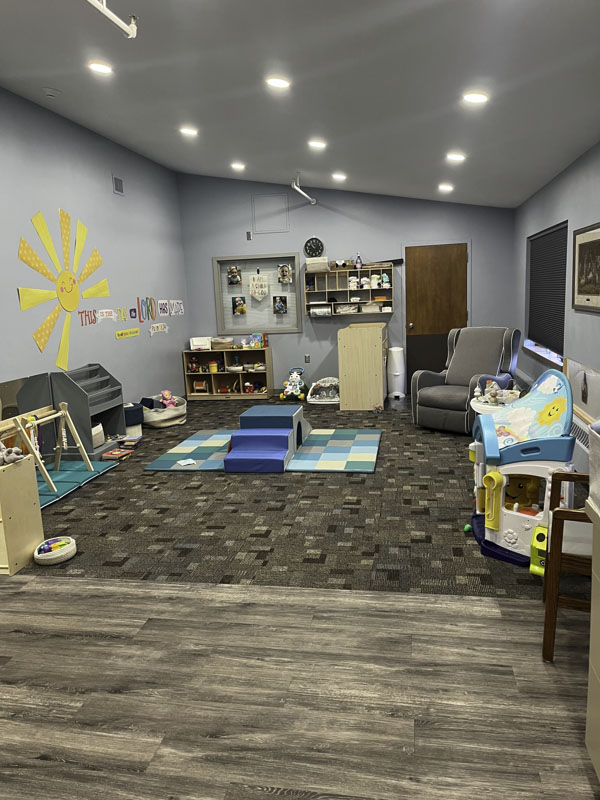
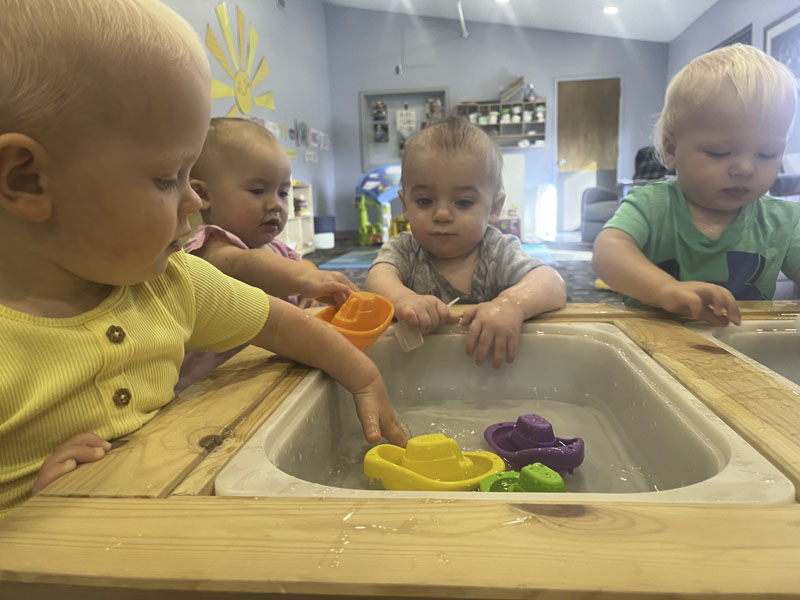
Toddler Classroom – Teacher Taylor Doering

Toddlers are generally 16 months to 33 months of age. Toddlers learn in many different ways through hands-on experiences and play. Throughout the year, themes may be used to help toddlers learn various concepts. Themes may include, but are not limited to: farm, sea life, fall, jungle and snow. Each day, toddlers are immersed in activities that help to develop the following domains:
Word of God
- learn simple truths of Bible Stories through songs and repetition of hearing Bible stories. Toddlers will learn that God loves them in all circumstances.
Social and Emotional development
- learn how to interact with peers of similar ages andshare toys and other materials.
Language Development and Communication
- learn language skills, listening skills, and
communication skills such as talking and taking turns in conversation through group
time, calendar time, story time and music activities.
Science and Sensory Activities
- explore through activities exposing them to different textures such as sand, rice, water and shaving cream.
Cognitive Development
- learn through exploration, discovery, problem solving, symbolic play and imitation.
Physical and Motor Development
- develop fine motor skills through building and connecting blocks, by creating their own artwork with markers, crayons, pencils and
paint brushes and by using silverware to feed themselves. Toddlers develop gross motor
skills by dancing, running, hopping, jumping, and climbing both indoors and outdoors.
Toddlers develop physical health and well-being skills by learning to use the toilet,
washing hands and putting on their own clothing. Toddlers also develop physical wellbeing skills by learning to dress themselves in boots, coats, hats and gloves before
enjoying outdoor play. Potty training is a focus for toddlers who show readiness skills.
Math
- practice numbers by counting, naming shapes, reciting the days of the week and other age-appropriate classroom activities.
At the end of each day, families will receive a summary sheet, which details information about the child’s day such as food intake, elimination, sleeping patterns, general behavior, and any other special activities from the day.
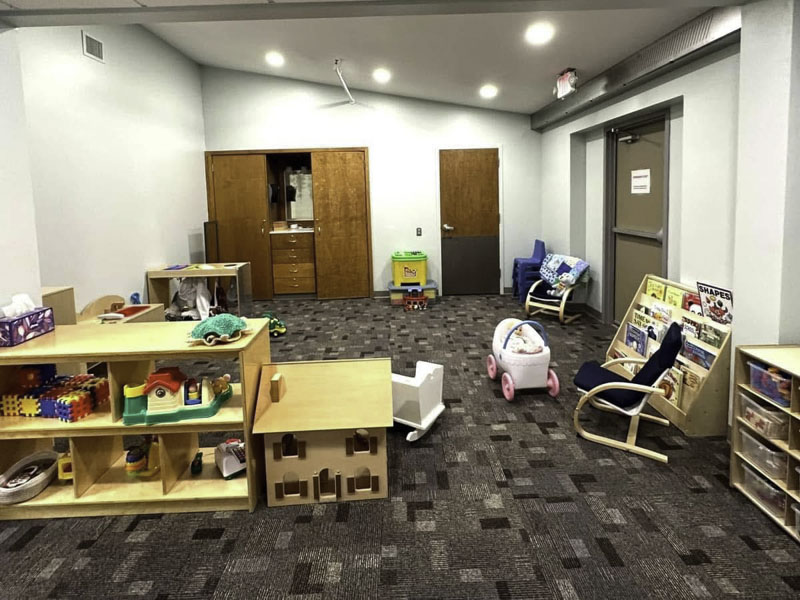
Pre-Kindergarten Classroom – Teacher Grace Weisensel
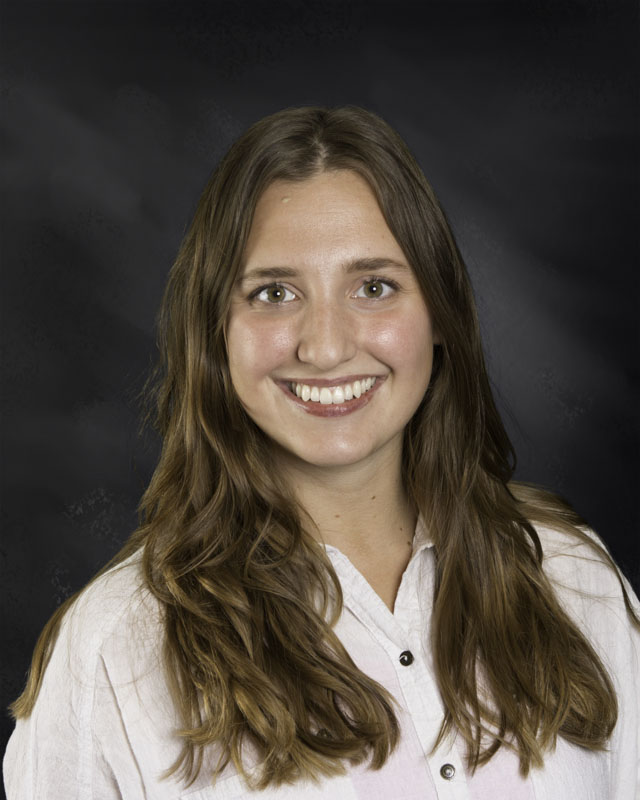
Preschoolers range in age from 33 months to 5 years of age. Preschoolers learn in a variety of ways including theme-based play. Age-appropriate classroom activities are planned by a licensed teacher. There may be specific lessons or activities planned for specific groups of children based on their individual developmental levels.
The following domains are included in lessons and activities:
Social and Emotional Development
- develop social skills as they play and interact with peers of similar ages. As they are introduced to new activities and experiences, they identify and build upon their individual interests. Preschoolers learn to understand feelings, emotions and differing ideas through free play, sharing time and circle times.
Language and Literacy
- learn to communicate by asking questions, giving answers, making statements, sharing ideas and using pretend play. They learn to listen and respond to stories, directions and conversations in group settings and during individual conversations with adults and peers. Preschoolers learn about sequences, rhymes, and beginning word and letter sounds. Literacy related play and activities are encouraged to
expose preschoolers to frequent opportunities to draw, write and copy.
Approaches to Learning
- learn as they think and talk about subject matter. They learn through their individual curiosities, experimenting, problem solving and using various strategies to arrive at solutions. Children are encouraged and allowed to be involved in all activities without fear and to express their individuality through discussions,
conversations, art, music and more to help increase their love of learning.
Creativity and the arts
- given opportunities to explore, experiment and express themselves with a variety of materials (art, music, movements). Preschoolers are
encouraged in the appreciation of arts through exposure to various types of music and
creative expressions such as dance and theatre.
Cognitive Development
- search for meaning and understanding by using math and logical thinking, scientific thinking, problem solving and social systems understanding. Preschoolers are encouraged to experiment, observe and discuss what they discover. Through observations, preschoolers grow cognitively, as well as socially and emotionally.
Physical and Motor Development
have a natural desire to move and be active, care for themselves and others and to learn good health and safety habits. Children are given the opportunity to develop fine motor skills through drawing, cutting and writing. To develop gross motor skills, children are given the opportunity to be active indoors and outdoors. They are provided with fun and challenging activities such as running, jumping and climbing. Children are encouraged to show independence in self-care activities such as
washing themselves, dressing themselves, and taking care when using sharp utensils such
as forks or scissors. Children learn about the importance of good nutrition, rest, safety and personal care practices such as hand washing and regular teeth brushing.
Parent Teacher Conferences
Formal Parent-Teacher Conferences are conducted twice per year to discuss each child’s
development and to provide a dedicated time for parents and teachers to meet. The conferences will include the teacher’s written assessment of the child’s intellectual, physical, social, emotional, and spiritual development. The assessments will be kept in each child’s record. Additional conferences are available at the request of parents or teachers.
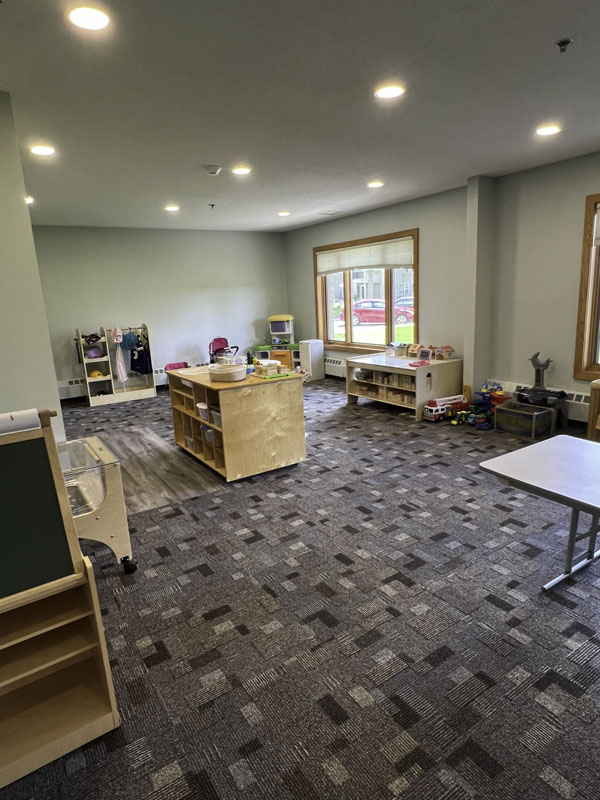
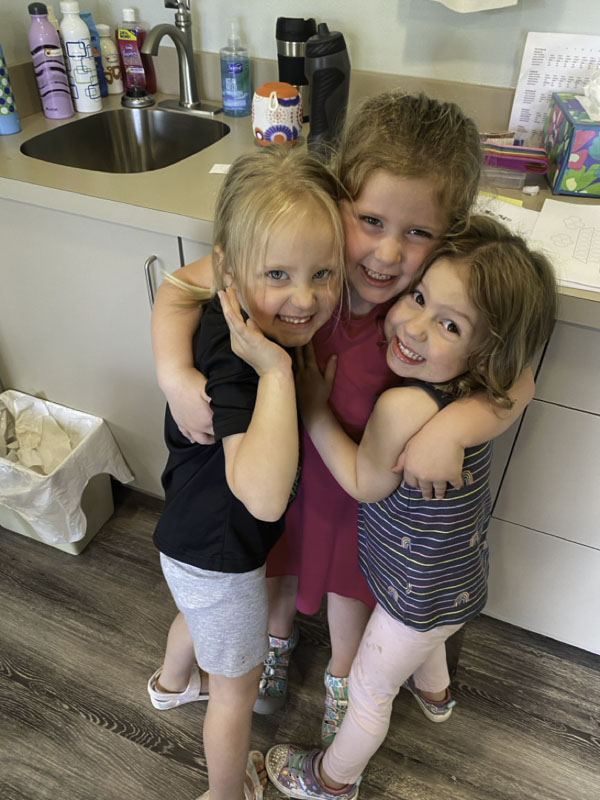
School Age Classroom
School-agers range in age from 5 years to 12 years old. School-agers learn in many different
ways including theme-based play and individual exploration. Age appropriate classroom activities are planned by a qualified teacher. There may be lessons or activities planned for specific groups of children based on their individual developmental levels. The following domains are included in lessons and activities:
Social and Emotional Development
- develop social skills as they play and interact with other like aged peers. As they are introduced to new activities and experiences, they identify and build upon their individual interests. Children continue to learn to understand feelings, emotions and differing ideas through free play, sharing time and circle times.
Language and Literacy
- learn to communicate by asking questions, giving answers, making statements, sharing ideas and using pretend play. They learn to listen and respond to stories, directions and conversations in group settings and during individual conversations with adults and peers of similar ages. Children learn about sequences,
rhymes, grammar and syntax.
Approaches to Learning
- learn as they think and talk about subject matter. They learn through their individual curiosities, experimenting, problem solving and using various strategies to come to solutions. Children are encouraged and allowed to be involved in all activities without fear and to express their individuality through discussions,
conversations, art, music and more to help increase their love of learning. Children are
encouraged to explore various ways of learning through watching others and by teaching
simple lessons and skills to their younger peers.
Creativity and the Arts
- given opportunities to explore, experiment and express themselves with a variety of materials (art, music, movement). Children are encouraged in the appreciation of arts through exposure to various types of music and creative
expressions such as dance and theatre.
Cognitive Development
- search for meaning and understanding by using math and logical thinking, scientific thinking, problem solving and social systems understanding. School-agers are encouraged to experiment, observe and discuss what they discover. Through observations, children grow cognitively as well as socially and emotionally. School Agers are also encouraged to make conclusions and test hypotheses on their own
while being supervised for safety.
Physical and Motor Development
- have a natural desire to move and be active, care for themselves and others and to learn good health and safety habits. Children are given the opportunity to further develop fine motor skills through drawing, cutting and writing. To develop gross motor skills, children are given the opportunity to be active indoors and outdoors. They are provided with fun and challenging activities such as running, jumping
and climbing. Children are encouraged to show independence in self-care activities such
as washing themselves, dressing themselves, and taking care when using sharp utensils
such as forks or scissors. Children learn about the importance of good nutrition, rest,
safety and personal care practices such as hand washing and regular teeth brushing.
Parent Teacher Conferences
Formal Parent-Teacher Conferences are conducted twice per year to discuss each child’s
development and to provide a dedicated time for parents and teachers to meet. The conferences
will include the teacher’s written assessment of the child’s intellectual, physical, social,
emotional, and spiritual development. The assessments will be kept in each child’s record.
Additional conferences are available at the request of parents or teachers.
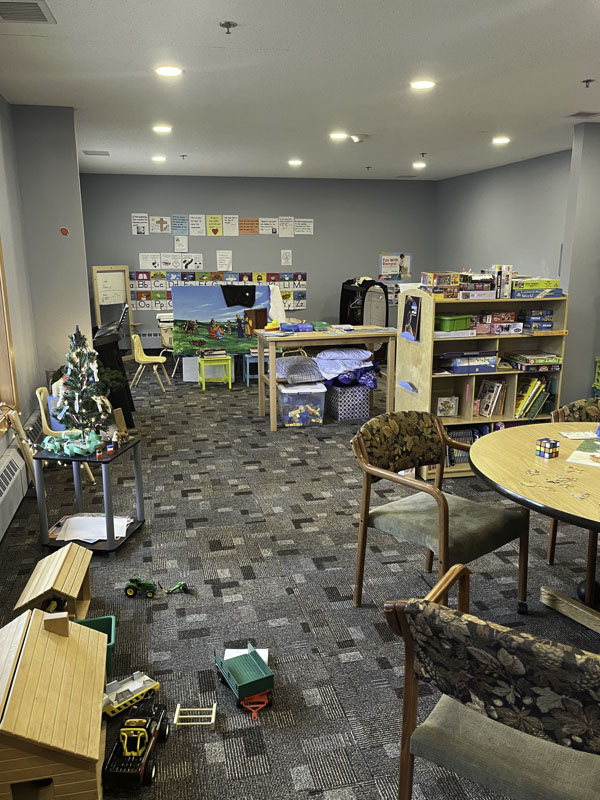
Mission Statement
The mission of God’s Treasures Childcare Learning Center is to assist parents in our church, as well as the surrounding community by providing quality childcare in a caring Christian environment.
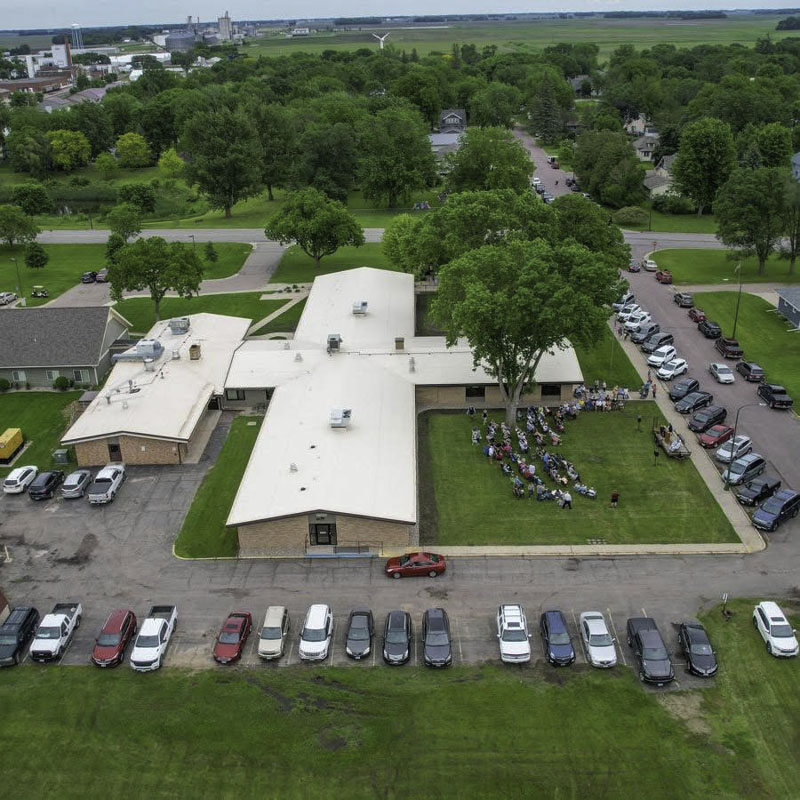
Vision Statement
The purpose of God’s Treasures Childcare Learning Center is to help and support parents in their God-given responsibility of nurturing their children by providing a Christ-centered, Gospel-rich atmosphere where children and adults are nurtured, supported and educated with mutual love, care, and respect.
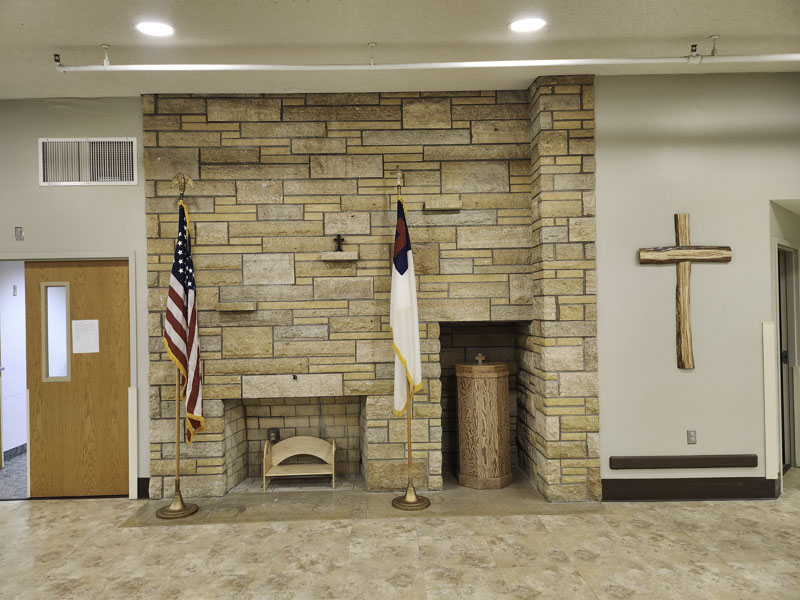
Goals
Children have their own way of learning and showing individuality. Formal Parent-Teacher Conferences are conducted twice a year to discuss each child’s development and to provide a dedicated time for parents and teachers to meet. The conferences will include the teacher’s written assessment of the child’s intellectual, physical, social, emotional, and spiritual development. The assessments will be kept in each child’s record. Additional conferences are available at the request of parents or teachers. Our program goals we seek to carry out for all children are:
Spiritually – The child will:
1. Learn that Jesus is their Savior from sin
2. Learn that Jesus is their best friend
3. Learn that the Bible is God’s Word
4. Gain an understanding of all that God created
5. Gain an understanding that God gives us all things including our abilities
6. Learn how we can use the abilities that God gave us to serve Him
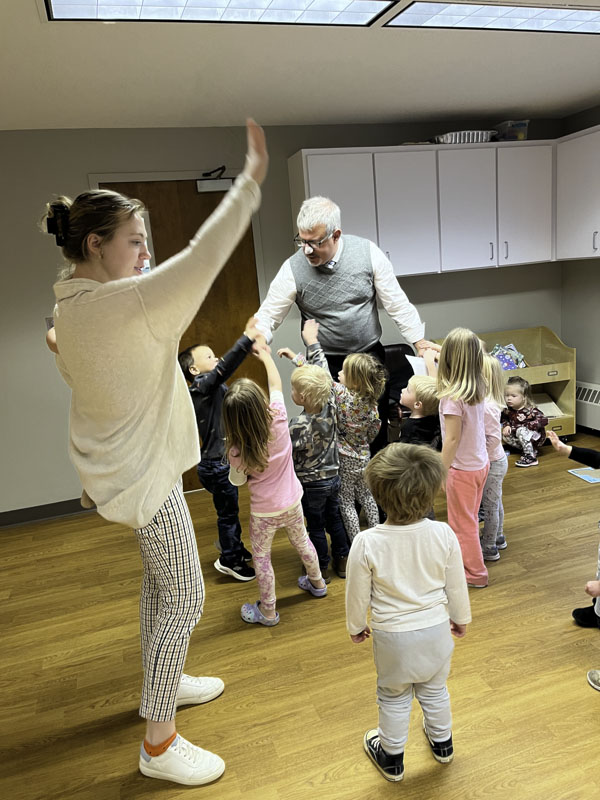
Physically – The child will:
1. Develop a sense of appreciation for the similarities and differences that God blesses us with2. Develop fine motor and gross motor control and coordination
3. Develop healthy lifestyle skills such as proper handwashing and nutrition skills
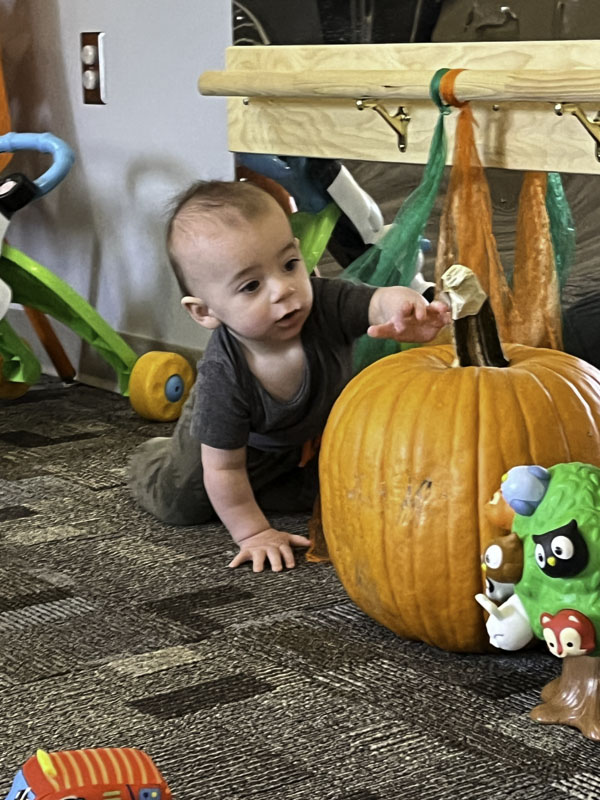
Intellectually – The child will:
1. Learn that their abilities are a gift from God
2. Make and express their individual choices and decisions
3. Develop language skills
4. Gain experience using various materials in many ways
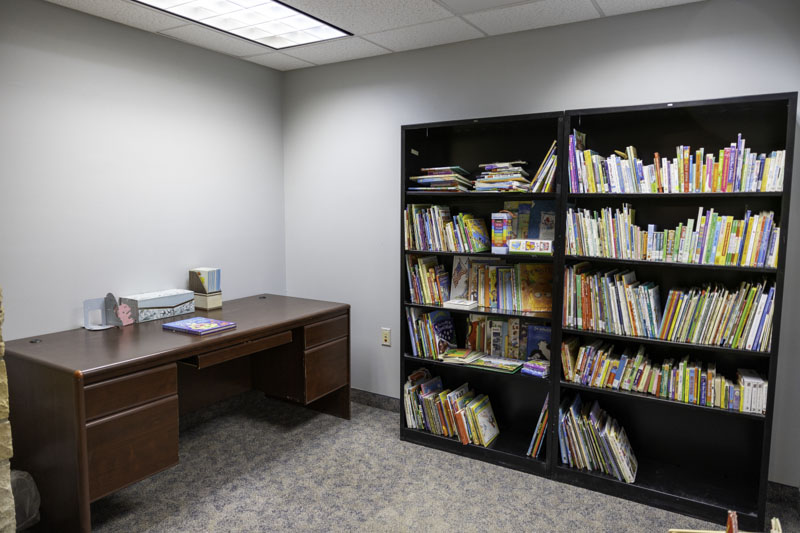
Socially – The child will:
1. Grow in Christian love, respect and empathy
2. Grow in their ability to interact with peers, adults and their environment
3. Experience successes in working and playing with others
4. Experience failures in working with others and learn how to overcome the feeling of defeat
5. Develop an understanding of what it means to respect others and be respected
Emotionally- The child will:
1. Grow in their ability to interact with peers, adults and their environment
2. Gain an understanding of self-discipline, self-respect and accountability
3. Learn about emotions and how to regulate them in a safe and respectful manner
